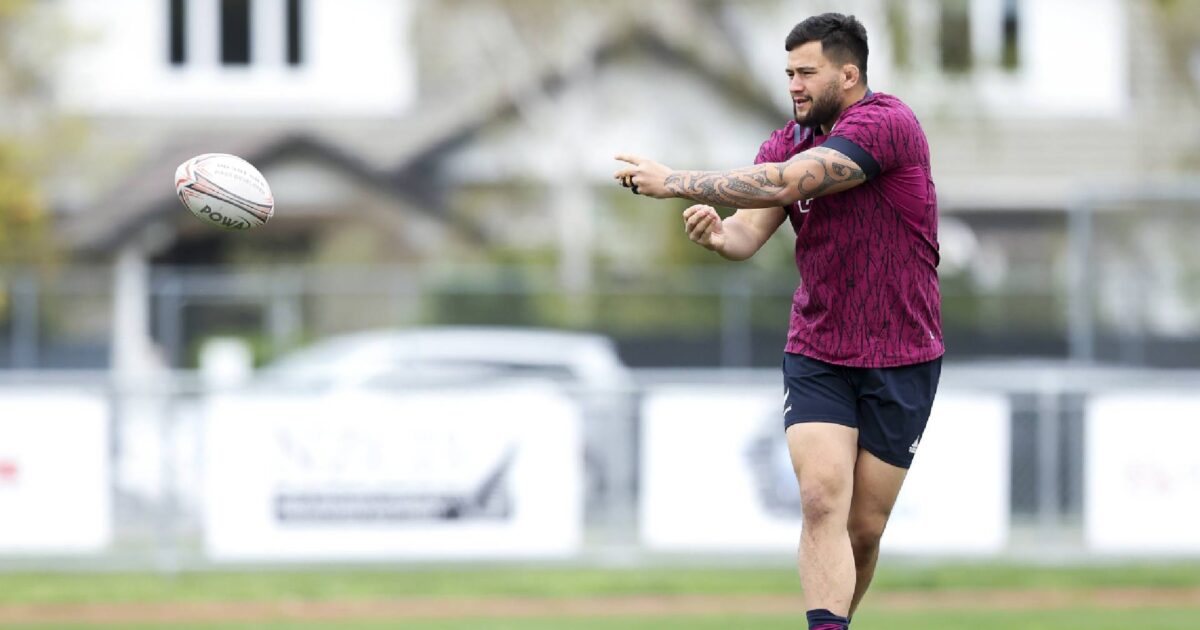Three All Blacks released from squad ahead of opening Bledisloe Cup test

Three All Blacks have effectively been ruled out of playing in the opening Bledisloe Cup clash on Sunday after being released to play for their respective provinces this weekend.
One-test Tasman prop Tyrel Lomax, uncapped Canterbury utility forward Cullen Grace and uncapped Wellington midfielder Peter Umaga-Jensen have all been given the green light to play in round five of the Mitre 10 Cup.
Subsequently, it’s unlikely any of the trio will be available for the match against the Wallabies, with Grace set to play Manawatu on Friday, Umaga-Jensen expected to face off against Otago on Saturday, and Lomax scheduled to go up against Bay of Plenty on Sunday.
Having only joined the All Blacks as injury cover on Wednesday, Umaga-Jensen will have to wait until next week’s second Bledisloe Cup test in Auckland at the earliest for a potential test debut.
The same can be said of Grace, while the wait for a second test cap goes on for Lomax, who hasn’t played for the All Blacks since making his international debut against Japan in November 2018.
Umaga-Jensen’s absence paves the way for Rieko Ioane, Jack Goodhue and Anton Lienert-Brown to contest for the two starting midfield roles, with recent call-up Ngani Laumape unlikely to feature as he continues to work through his recovery from an arm fracture.
There are a plethora of options available to cover for Grace, who is capable of playing at either lock, blindside flanker or No. 8.
The 20-year-old’s availability for Canterbury means any one of Shannon Frizell, Hoskins Sotutu, Akira Ioane and Dalton Papalii could feature in the loose forwards alongside starting certainties Ardie Savea and captain Sam Cane.
Predicted to start on the bench as lock cover by RugbyPass earlier in the week, it appears Grace’s departure has made uncapped rookie Tupou Vaa’i the frontrunner to claim the No. 19 jersey in a supporting role to Patrick Tuipulotu and Sam Whitelock.
Injury cover Mitchell Dunshea, who has come into the squad to fill the void left by Crusaders teammate Quinten Strange, may come into consideration, though.
Without Lomax, the tighthead prop spot looks to be a two-way battle between Blues standout Ofa Tu’ungafasi and last year’s All Blacks incumbent Nepo Laulala.
All Blacks head coach Ian Foster revealed on Tuesday that he had already told his squad what the match day side for Sunday’s test in Wellington will be, but the team won’t be released publicly until Friday.











































































